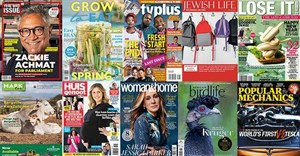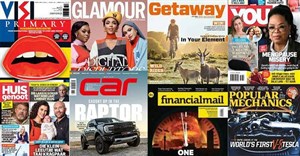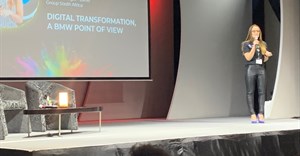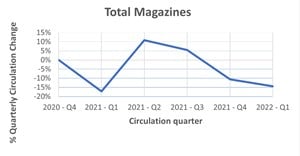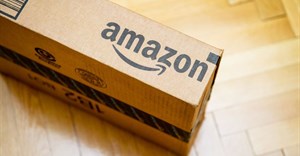
Subscribe & Follow
Jobs
- Head of Digital Johannesburg
- Social Media Specialist Johannesburg
- Digital Brand and Marketing Manager Cape Town
- Digital Projects Administrator Pretoria
- Mid-level SEO Specialist Cape Town
- Digital AI Intern Cape Town
- Copywriter Cape Town
- Junior Copywriter Cape Town
- Digital Designer Cape Town
- PR and Digital Content Writer Sandton
Print media's big digital decision
In some countries, the number of magazines and newspaper read online can be added to official sales figure only if a subscription is paid for the digital edition. Free content doesn't carry much currency. In other countries, print media are able to add all downloaded content to overall sales.
Car and Getaway
Here in South Africa, for example, Ramsay Media has started offering titles such as Getaway and Car magazine in digital guise for iPad users via UK distributors, Zinio, for a subscription fee, and can claim a combination of digital and hard copy sales.
Alternatively, there are literally thousands of newspapers and magazines available free for iPad users from those countries that don't seem to require subscriptions in order to add hard copy and digital versions. Once such title is Advertising Age in the US, which can be downloaded by mobile users free of charge. There are heaps more.
User specific
Clearly, the decision taken by a lot of print media is to give away content as long as it can be tracked to a specific user in a specific region so that this data can be added to hard copy sales in order to create higher circulation and hence readership figures and thus boost advertising revenue.
Paid for digital subscriptions will more than likely not be nearly as high as freebies but then there will be increased revenue from cover price.
In SA, if one takes the example of a weekly community tabloid newspaper with a circulation of roughly 12 000, with the cost of printing and distributing by mail, a subscriber copy comes to more than R8 an issue. In digital form for the same subscription price, the cost is practically nothing. A few cents. Which means that digital subscriptions based on an existing hard copy products are massively profitable.
Much cheaper read
Getting back to Car and Getaway magazines, I got digital copies recently after having been notified by email that the latest issues were available. Unlike getting, say, Ad Age for free and having to use about 60Mb of my data bundle to download it, I was able to read Car and Getaway on my iPad online without any big downloads, making it a much cheaper read.
Zinio may not have the greatest reader, it's not as good as iBooks, but it is still very efficient.
While audit rules in various countries might well be the final decider on whether to go the subscription or free content route, it is going to be fascinating in time to see which business model is the best.
It's the old story
In a nutshell, it's the old story. To go for maximum sales to achieve higher advertising rates and revenues or to go the subscriber route and expect higher cover prices to augment ad revenue? And this will probably depend on just where you live.
The digital media explosion hasn't happen yet, mainly because the only "mobile" worth reading newspapers and magazines on is the Apple iPad, unless you have brilliant eyesight and a really good cellphone.
But, with the iPad due to launch officially in South Africa soon, and Blackberry having followed up with its slightly smaller tablet, the use of digital products for newspaper and magazine consumption is set to grow.
Mind-boggling
Other manufacturers are following hard and fast and soon there will be a mind-boggling array of digital media readers of every shape and size.
The word "mobile" no longer means cellphone. It has literally and figuratively become a lot bigger than that. And equally, reading online or downloaded titles no longer means sitting in front of a computer screen. It's grown far beyond that.
And just as products such as Amazon's Kindle have revolutionised book reading, these highly mobile tablets will have the same effect on newspapers and magazines.
All of which is going to change the way local publishers look at online solutions. Having just judged some magazine awards, I can safely say that very few magazines in this country have managed to get things right in terms of their online solutions.
I would guess, too, that print media audit organisations could well start adapting their rules and regulations to the extent that one or the other business plan will make more sense than the other.
For more:
- Bizcommunity: HR Future shows the way for B2B publishers











